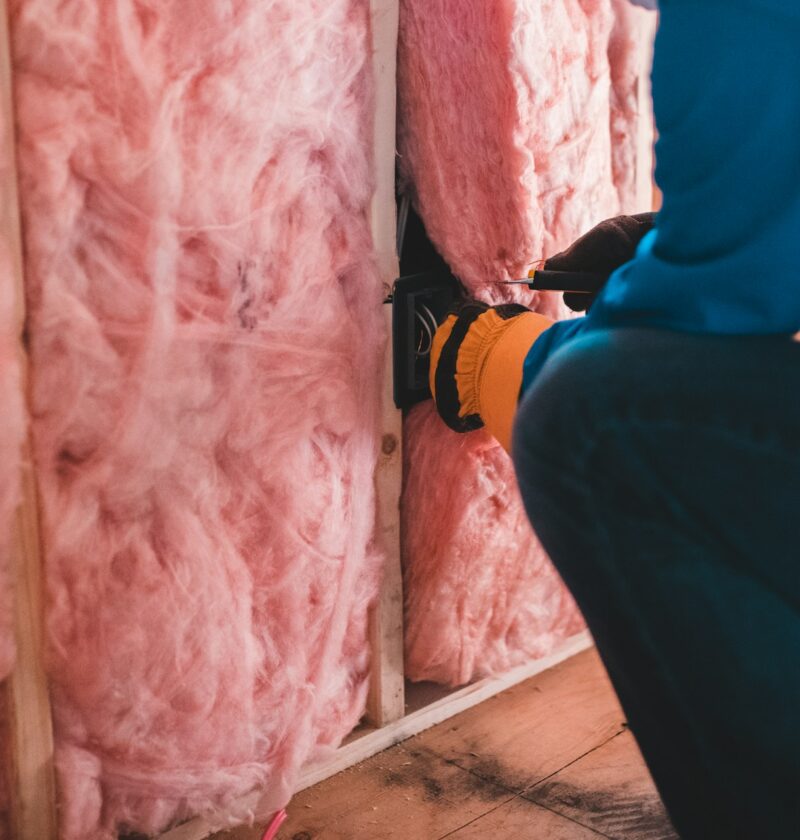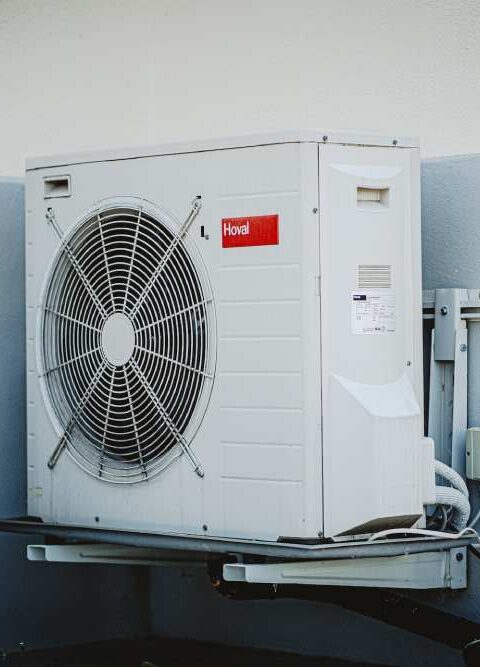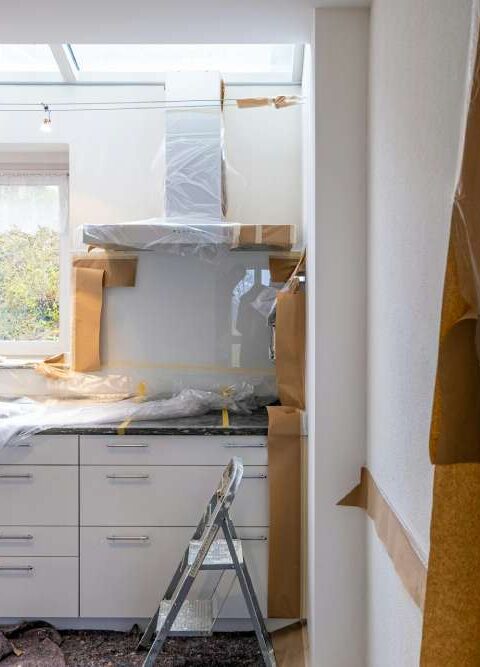When it comes to creating a comfortable and healthy living environment, insulation often doesn’t get the attention it deserves. However, it’s a key player in ensuring both comfort and air quality in your home. In this post, we’ll explore how insulation works, why it’s crucial, and the specific benefits it offers for enhancing comfort and improving air quality.
Understanding Insulation: The Basics
Insulation is a material that reduces the transfer of heat, either from outside to inside or vice versa. The primary goal is to maintain a stable indoor temperature, which is especially important in climates with extreme temperatures.
Types of Insulation
- Fibreglass – Made from fine glass fibres, it’s one of the most common types of insulation.
- Foam Board – Rigid panels of insulation that can be used to insulate almost any part of your home.
- Spray Foam – Applied as a liquid that expands and hardens, filling gaps and providing excellent air sealing.
- Cellulose – Made from recycled paper products, treated for fire resistance.
How Insulation Works
Insulation works by trapping air within its structure. Air is a poor conductor of heat, so trapped air slows down the transfer of heat. This process helps keep warm air inside during winter and outside during summer.
Comfort: More Than Just Temperature
Insulation plays a vital role in creating a comfortable living space by maintaining a consistent indoor temperature, but its benefits go beyond just temperature control.
Temperature Regulation
A well-insulated home ensures that you experience fewer fluctuations in indoor temperature, making your living space more comfortable year-round. Fletcher’s website gives you more detail on how to make this a reality. In winter, it helps keep the heat in, reducing the need for excessive heating. In summer, it keeps the heat out, reducing the reliance on air conditioning.
Soundproofing
Insulation can also provide soundproofing benefits. Materials like fibreglass and cellulose can absorb sound, reducing the amount of noise that travels through walls and floors. This can lead to a quieter, more peaceful living environment.
Reduced Energy Bills
By maintaining a stable indoor temperature, insulation reduces the need for heating and cooling systems to work overtime. This leads to lower energy consumption and, consequently, lower energy bills. It’s a win-win situation: more comfort for less cost.
Enhancing Air Quality
While comfort is a major benefit of insulation, improving air quality is another critical advantage that often goes unnoticed.
Reducing Infiltration of Pollutants
Proper insulation helps seal your home from external elements. This sealing effect prevents outdoor pollutants, such as pollen, dust, and other allergens, from entering your home. As a result, the indoor air remains cleaner and healthier.
Preventing Moisture Build-Up
Moisture is a significant concern when it comes to indoor air quality. High moisture levels can lead to mould and mildew growth, which can adversely affect air quality and cause health issues. Insulation helps control moisture levels by preventing condensation on walls and ceilings.
- Spray Foam – Excellent for sealing gaps and cracks, preventing moisture infiltration.
- Foam Board – Provides a moisture barrier, especially useful in basements and crawl spaces.
Improved Ventilation
Good insulation works hand-in-hand with proper ventilation. By reducing drafts and sealing gaps, insulation ensures that your ventilation system works more efficiently. This results in better air exchange, helping to remove stale air and introduce fresh air into your home.
Health Benefits of Improved Air Quality
Improved air quality due to proper insulation has several health benefits, making your home a healthier place to live.
Reduced Allergies and Asthma
By preventing the infiltration of allergens and pollutants, insulation helps reduce the symptoms of allergies and asthma. Cleaner indoor air means fewer irritants that can trigger respiratory issues.
Prevention of Respiratory Issues
Mould and mildew, which thrive in moist environments, can cause serious respiratory problems. Insulation helps keep moisture levels in check, reducing the risk of mould growth and the associated health issues.
Better Sleep Quality
A well-insulated home, with better temperature regulation and reduced noise levels, creates an ideal environment for restful sleep. Improved air quality also means fewer nighttime irritants, contributing to better overall sleep quality.
Environmental Impact
Insulating your home not only benefits you but also has a positive impact on the environment.
Reduced Energy Consumption
Lower energy usage means less reliance on fossil fuels, reducing your carbon footprint. By using less energy for heating and cooling, you contribute to environmental conservation efforts.
Sustainable Insulation Materials
Many insulation materials are made from recycled or sustainable sources. For example, cellulose insulation is made from recycled paper, and some spray foams are made from renewable resources. Choosing these materials supports sustainable practices and reduces environmental impact.
Choosing the Right Insulation
When it comes to selecting insulation for your home, several factors should be considered:
Climate
The climate in your region plays a significant role in determining the type of insulation you need. For example, homes in colder climates may require insulation with a higher R-value (a measure of insulation’s effectiveness) to keep the heat in during winter.
Home Structure
Different parts of your home may require different types of insulation. Attics, walls, basements, and crawl spaces each have unique needs. Consulting with a professional can help determine the best approach for each area.
Budget
While some insulation options may have a higher upfront cost, they often result in significant long-term savings through reduced energy bills. Consider your budget and the potential return on investment when making your decision.
Installation: Professional vs. DIY
Professional Installation
Hiring a professional to install insulation ensures that it’s done correctly and efficiently. Professionals have the expertise to address specific needs and potential issues, such as moisture control and air sealing.
DIY Installation
For those who prefer a hands-on approach, some types of insulation, like batt insulation, can be installed by homeowners. However, it’s essential to follow guidelines and safety measures to ensure effective installation.
Maintenance and Upkeep
To maintain the benefits of insulation, regular checks and maintenance are necessary.
Inspect for Damage
Regularly inspect your insulation for signs of damage, such as moisture intrusion or pest infestation. Addressing these issues promptly can prevent more significant problems down the line.
Upgrade When Necessary
As insulation technology advances, newer and more efficient options become available. Periodically upgrading your insulation can improve your home’s comfort and air quality even further.
Final Thoughts
Investing in proper insulation is one of the best decisions you can make for your home. It not only enhances comfort by regulating temperature and reducing noise but also significantly improves air quality, leading to a healthier living environment.
With benefits that extend to energy savings and environmental impact, insulation truly is an unsung hero in home improvement. Whether you choose professional installation or a DIY approach, the long-term advantages make it well worth the effort.







